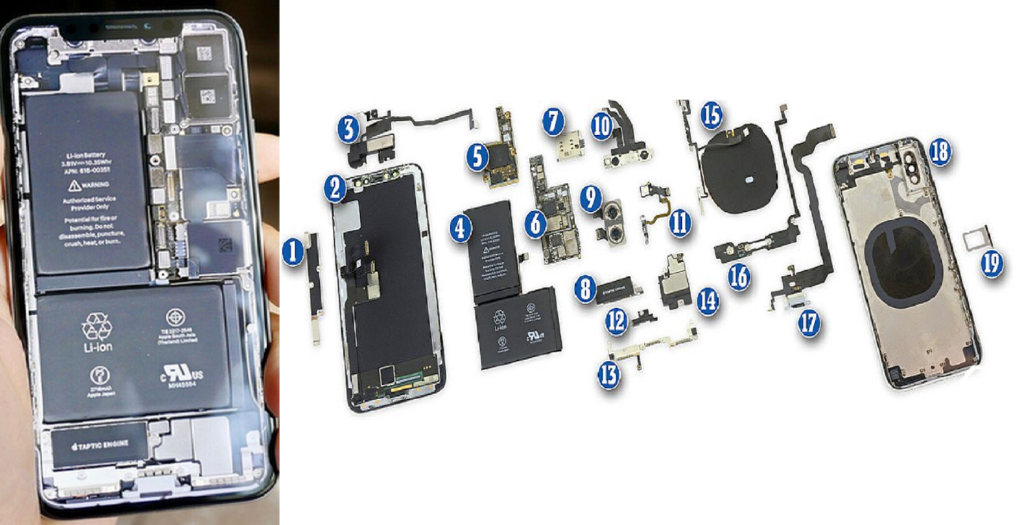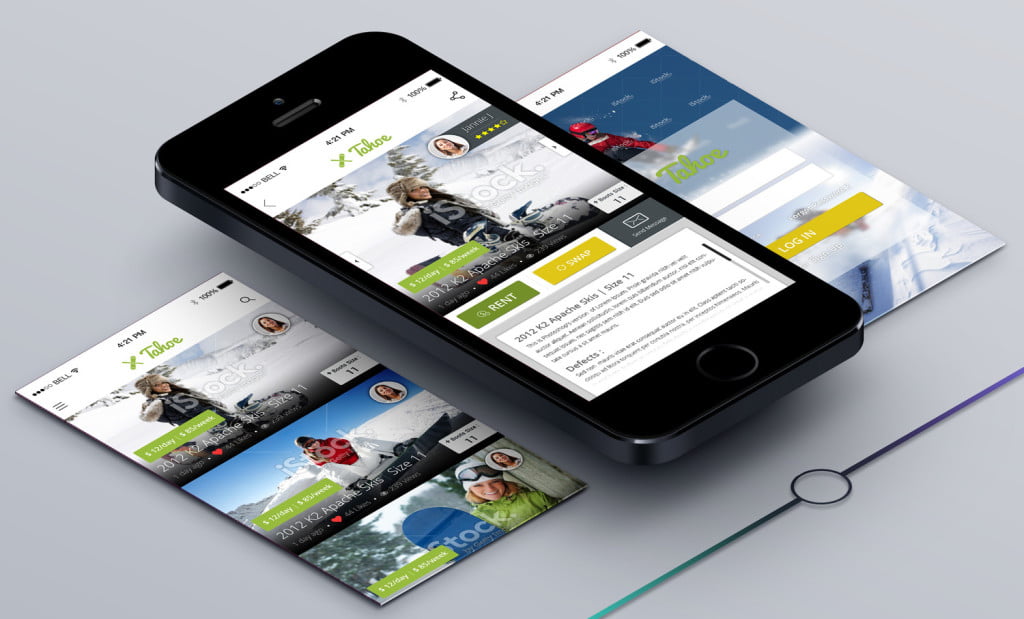Technology
The Best Cameras For YouTubers
Have you ever heard of the saying, the best Cameras is the one you have with you? If this is true, then the best camera for you could very well be your smartphone! Of course, if you’re making money by shooting videos on YouTube, this probably isn’t going to cut it. Fortunately, there are many great cameras out there that offer quality video in a small package. After taking into account popular models from leading brands like Sony and Nikon, we think these are the five best cameras for YouTubers!
How to find the best camera for YouTube

The first thing to consider is whether you want a DSLR camera or a mirrorless one. Each type has its own set of benefits and disadvantages, but both can be used for YouTube. A DSLR (digital single-lens reflex) camera will cost more and have higher quality, but if you’re just getting started with videos, you might find it more difficult to use because of its interchangeable lenses. Mirrorless cameras are easier to learn how to use—with fewer knobs and buttons—but they aren’t as good at taking photos in low light situations. Bottom line: You’ll want one that takes great video (720p+) in most lighting conditions without distortion, artifacts or too much noise.
Mobile Phone Cameras

While it may seem silly to suggest using a smartphone’s camera for high-quality vlogging, phones are getting increasingly powerful and there are some excellent options out there. As we all know, YouTube is filled with people with amazing smartphones capable of producing beautiful footage. While many phone cameras don’t match up to higher-end models, these four phones can actually hold their own quite well in comparison. These are not only good vlogging cameras but also great everyday shooters as well. The Galaxy S9+ ($840) is an extremely popular option due to its overall versatility and power for both photography and video.
Professional DSLR Cameras

If you are serious about your videos and want a professional standard of video quality, then choosing a DSLR for YouTube is a good choice. Professional DSLRs often have interchangeable lenses, advanced manual controls and long battery life which are all crucial to getting high-quality shots. But it’s worth remembering that they can be quite bulky as well as expensive, so if you’re just starting out on YouTube, then there may be other camera options better suited to you. We’ve reviewed several great cameras for YouTube below – if you’re considering investing in one of these then head over to our reviews where we go into more detail about each camera: Canon EOS 6D Mark II , Canon EOS 5D Mark IV , Nikon D750 and Sony A7S II .
Mirrorless Camera Systems

These smaller, lighter cameras are ideal for capturing video. They are typically more expensive than DSLRs but offer top-notch picture quality and some even allow you to swap lenses. Nikon’s full-frame mirrorless camera systems—the Z7 and Z6—are both excellent choices for videographers. The Canon EOS R, another full-frame model, is also worth a look. And if you’re not ready to spend big bucks on a mirrorless system but still want something small and portable, Sony’s A6400 offers professional performance in a compact package at an affordable price.
Video Vlogging Cams

Getting Started – Vlogging used to be a word that was pretty much only known by those in broadcasting, but over time it has slowly seeped into everyday life. It has been given new life thanks to YouTube and other social media platforms where ordinary people can stream videos online for an audience of millions. If you have decided to try your hand at vlogging, then you will need one important tool – a camera. But if you are like most first-time vloggers, trying to choose which camera to buy can be an intimidating process. Luckily for you, we have compiled a list of cameras that are sure to give you great performance without having to sell your first born child in order to pay for them.
Sports
Navigating Education and Career Development: A Comprehensive Guide to Success
In today’s fast-paced and ever-changing world, education and career development have become essential components of personal and professional success. Whether you’re a student just starting your educational journey or a seasoned professional looking to advance your career, the path forward can often seem daunting. However, with the right strategies and resources, you can navigate the complexities of education and career development with confidence and clarity. In this detailed guide, we’ll delve into the intricacies of accessing educational resources, seeking career advice, honing essential skills, and staying informed about job market trends to help you chart a course toward your goals.
Accessing Educational Resources: The internet has revolutionized the way we access information and learn new skills. There is now a wealth of educational resources available at our fingertips, catering to a wide range of interests and learning styles.
- Online Learning Platforms: Websites such as Coursera, Udemy, and edX offer thousands of courses taught by experts in various fields, allowing you to learn at your own pace from anywhere in the world.
- Open Educational Resources (OER): Platforms like OpenStax and MIT OpenCourseWare provide free access to textbooks, lecture notes, and other educational materials, making quality education more accessible to all.
- Libraries and Academic Institutions: Local libraries and academic institutions offer a treasure trove of resources, including books, journals, research databases, and access to academic programs and workshops.
Seeking Career Advice: Navigating the complexities of career development often requires guidance and mentorship from experienced professionals who can offer valuable insights and advice.
- Career Counseling Services: Many educational institutions and career centers provide counseling services to help individuals explore career options, identify their strengths and interests, and develop a personalized career plan.
- Networking: Building professional networks through platforms like LinkedIn, attending industry events, and joining professional organizations can connect you with mentors, peers, and industry professionals who can offer valuable advice and opportunities.
- Informational Interviews: Conducting informational interviews with professionals in your desired field can provide valuable insights into industry trends, job requirements, and potential career paths.
Honing Essential Skills: In today’s competitive job market, possessing a diverse set of skills is essential for career advancement and success.
- Hard Skills: Hard skills refer to technical expertise and knowledge specific to a particular field or industry. These skills are often acquired through formal education, training programs, and hands-on experience.
- Soft Skills: Soft skills, also known as interpersonal or “people” skills, are equally important and include communication, teamwork, problem-solving, adaptability, and leadership. These skills are often developed through practice, feedback, and real-world experiences.
- Lifelong Learning: Cultivating a mindset of lifelong learning is essential for staying relevant and competitive in today’s rapidly evolving job market. This involves continuously seeking opportunities to acquire new skills, adapt to new technologies, and stay abreast of industry trends and developments.
Staying Informed about Job Market Trends: Understanding job market trends and industry dynamics is crucial for making informed career decisions and positioning yourself for success.
- Industry Research: Conducting research on job market trends, labor market projections, and industry growth sectors can help you identify emerging opportunities and areas of demand.
- Professional Development: Investing in professional development opportunities such as workshops, seminars, conferences, and online courses can help you acquire new skills, expand your knowledge base, and enhance your marketability to employers.
- Job Market Analytics: Utilizing job market analytics tools and resources, such as job boards, employment reports, and salary surveys, can provide valuable insights into job openings, salary trends, skill requirements, and other factors affecting the job market in your chosen field or occupation.
Conclusion: Education and career development are lifelong journeys that require dedication, curiosity, and adaptability. By accessing educational resources, seeking career advice, honing essential skills, and staying informed about job market trends, you can empower yourself to achieve your educational and professional aspirations. Remember that success is not always linear and that setbacks and challenges are inevitable along the way. However, with perseverance, resilience, and a commitment to continuous learning and growth, you can navigate the complexities of education and career development and chart a course toward a fulfilling and rewarding future.
Affiliate
Google Canada Careers Toronto
Google Canada Careers Toronto
Retention and Expansion Sales Specialist, Security, Google Cloud
corporate_fare Google place Toronto, ON, Canada ; Ottawa, ON, Canada ; +3 more laptop_windows Remote eligible
Apply
info_outline X Info
Note:
Google’s hybrid workplace includes remote and in-office roles.
By applying to this position you will have an opportunity to share your preferred working location from the following:
In-office locations: Toronto, ON, Canada; Ottawa, ON, Canada; Waterloo, ON, Canada.
Remote location(s Alberta, CA; Quebec, CA
Note:
Google’s hybrid workplace includes remote and in-office roles.
By applying to this position you will have an opportunity to share your preferred working location from the following:
In-office locations: Toronto, ON, Canada; Ottawa, ON, Canada; Waterloo, ON, Canada.
Remote location(s): Alberta, CA; Quebec, CA.
~5 years of experience in a sales or account management role
~3 years of experience in SaaS sales
~3 years of experience in closing high-touch agreements
~ Ability to travel up to 25% of the time
Preferred qualifications:
~ Bachelor’s degree in business administration, communication, or a related field
~5 years of experience in a sales or account management role
~ Experience in the technology industry
~ Experience in sales
~ Understanding of enterprise business models and pricing
About the job
As a Retention and Expansion Sales Specialist, you will be responsible for managing and growing a portfolio of global accounts by renewing, upselling, and cross-selling.
You will be proficient across Google Cloud’s Security product SaaS offerings and effectively represent Google Cloud’s full suite of products and services by using technical, organizational, and customer knowledge to influence clients and grow business.
Google Cloud accelerates organizations’ ability to digitally transform their business with the best infrastructure, platform, industry solutions and expertise.
We deliver enterprise-grade solutions that leverage Google’s cutting-edge technology – all on the cleanest cloud in the industry.
Customers in more than 200 countries and territories turn to Google Cloud as their trusted partner to enable growth and solve their most critical business problems.
Responsibilities
Develop and execute account plans to achieve renewal and growth/expansion goals.
Manage and grow a portfolio of strategic accounts.
Identify and qualify new opportunities within existing accounts for upsell.
Develop and deliver sales presentations and proposals, and stay up-to-date on a full suite of Google Cloud Security and Mandiant products and services.
Negotiate and close agreements, and build and maintain relationships with key decision-makers.
Google is proud to be an equal opportunity and affirmative action employer.
We are committed to building a workforce that is representative of the users we serve, creating a culture of belonging, and providing an equal employment opportunity regardless of race, creed, color, religion, gender, sexual orientation, gender identity/expression, national origin, disability, age, genetic information, veteran status, marital status, pregnancy or related condition (including breastfeeding), expecting or parents-to-be, criminal histories consistent with legal requirements, or any other basis protected by law.
See also Google’s EEO Policy , Know your rights:
workplace discrimination is illegal , Belonging at Google , and How we hire .
Google is a global company and, in order to facilitate efficient collaboration and communication globally, English proficiency is a requirement for all roles unless stated otherwise in the job posting.
To all recruitment agencies:
Apply Now
Google does not accept agency resumes. Please do not forward resumes to our jobs alias, Google employees, or any other organization location. Google is not responsible for any fees related to unsolicited resumes.
Technology
8 Reasons Of Why People Love The iPhone Reasons
iPhone is among the most influential companies in recent years. It’s a dominant player in technology. Apple is the company that has created more technology related innovation since it was founded. It is responsible for more than 80 percent of the profit of the tech sector in the last fiscal quarter. The company is also responsible for much of the innovation in modern technology. Because of this, it’s no wonder that Apple products have become some of the most desired and valuable items in the world. Despite its growing popularity, Apple remains difficult to work with and difficult to love. This is the number one reason people might switch from an Apple device to a different brand.
The iPhone’s Hardware

The iPhone has made its mark on the world. In fact, it’s become so ubiquitous that its very presence has had a significant impact on technology as a whole. Apple has sold over 1 billion iPhones worldwide and is currently the largest smartphone company in the world. The hardware used in the iPhone has been a part of Apple’s success. It’s design and functionality were crucial to the company’s success.
The iPhone’s User Interface

The user interface of an iphone is simple and easy to use. Apple’s approach to the user interface (UI) is to provide a set of tools for the user to do what he or she wants, and not limit the user to a specific set of This approach makes it easy to adapt to the user’s current situation and is also consistent across different devices. It’s a great way to keep the user experience consistent. Apple’s design philosophy is to make its products intuitive to use, and thus allow people to be creative and make the best use of the product.
Apple’s Unique Branding Strategy
The key to Apple’s success is that its products look and feel like the best available at the time they were introduced. There’s an aesthetic quality to Apple’s brand that makes people believe that their products must be better than other brands. Apple’s branding strategy has been successful over the years. Their products are unique, high-quality, and made to stand out from competitors. Apple’s brand has become so strong that even if they were to introduce a competitor’s product tomorrow, people would still recognize it as the same Apple product that they’ve used for years.
The iPhone’s Market Position
iPhone users are notoriously loyal. There’s a good reason for this: Apple has earned its customers’ trust. The iPhone is known for its ease of use, reliable hardware, and a consistent experience across both platforms. In addition, Apple does a great job of communicating this trustworthiness to customers. They do this through subtle product details and the company’s well-known brand. All of these factors help give iPhone users the confidence to buy the phone without fear.
Apple’s Leadership and Management Style
At least one thing is clear about Steve Jobs: He was not an ordinary leader. For starters, he was not a man who took orders easily. This led to a lot of friction in his relationships with other leaders. When Jobs was leading a project or company, he typically did not delegate authority to others; rather, he took control and directed his team to do what he wanted done. In other words, he was the boss. His leadership style meant that others, such as Tim Cook and Scott Forstall, had to learn to adapt to his leadership methods and act more like subordinates than bosses.
How to Sell the iPhone
Apple is known for being very protective about how people sell their products. As an example, the Apple Store requires that all retail locations have a person in charge of phone sales. An authorized reseller of an iPhone is approved by Apple. That means the company has confirmed the reseller is an approved carrier and partner. Amazon has been criticized for being overly aggressive about controlling the market, but the results of that strategy have been undeniable.
The iPhone’s Marketing Campaign

Apple’s marketing campaign for the iPhone is a classic example of the importance of developing a unique selling proposition. Steve Jobs said, “The only reason people buy Macs is because they’re cool, but it’s not because they’re better; they just sell cool.” Apple realized that, if it could convince people that its phones were cool, that would be the reason that people bought them. The iPhone wasn’t just a phone; it was a tool. This was the point of the campaign.
Why You Should Get an iPhone
If you’re in the market for a smartphone, there are plenty of reasons to consider the iPhone. Sure, it’s expensive compared to competing smartphones, but its long track record of success and popularity makes up for it. Also, Apple’s unique brand is the key to its success. Consumers flock to it because they trust it and associate it with high quality products.
Interested in Reading My Article on New Apple Exclusive Reveals Iphone 14 Price Shock
-

 Blog4 weeks ago
Blog4 weeks agoSomeone’s going to die! Home and Away fan favourite set to be killed off: ‘Who won’t make it home?’
-

 Home and Away4 weeks ago
Home and Away4 weeks agoHome and Away’s Bronte Langford to finally be caught out
-

 Home and Away4 weeks ago
Home and Away4 weeks agoHome and Away fans react to Felicity Newman’s death: ‘In tears’
-

 Home and Away4 weeks ago
Home and Away4 weeks agoHome and Away Spoilers – Iluka says goodbye as Mali and Rose split
-

 Home and Away4 weeks ago
Home and Away4 weeks agoHome and Away star responds to tragic death storyline
-

 Home and Away4 weeks ago
Home and Away4 weeks agoHome and Away Spoilers: Dana Kidnapped After Revealing Bronte’s Scam
-

 Home and Away4 weeks ago
Home and Away4 weeks agoHome and Away Veteran Lynne McGranger Shares Alarming Injury Photos
-

 Home and Away4 weeks ago
Home and Away4 weeks agoHome and Away’s Producer Alerts Fans to Upcoming Emotional Episode

